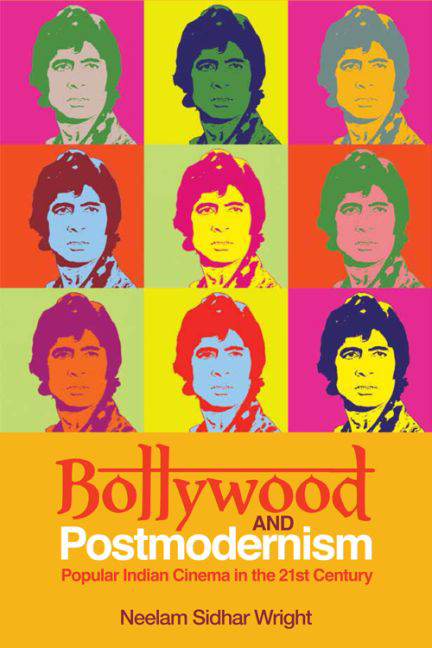Book contents
- Frontmatter
- Contents
- Acknowledgements
- List of Figures
- List of Abbreviations of Film Titles
- 1 Introduction: The Bollywood Eclipse
- 2 Anti-Bollywood: Traditional Modes of Studying Indian Cinema
- 3 Pedagogic Practices and Newer Approaches to Contemporary Bollywood Cinema
- 4 Postmodernism and India
- 5 Postmodern Bollywood
- 6 Indian Cinema: A History of Repetition
- 7 Contemporary Bollywood Remakes
- 8 Conclusion: A Bollywood Renaissance?
- Bibliography
- List of Additional Reading
- Appendix: Popular Indian Film Remakes
- Filmography
- Index
7 - Contemporary Bollywood Remakes
Published online by Cambridge University Press: 12 September 2017
- Frontmatter
- Contents
- Acknowledgements
- List of Figures
- List of Abbreviations of Film Titles
- 1 Introduction: The Bollywood Eclipse
- 2 Anti-Bollywood: Traditional Modes of Studying Indian Cinema
- 3 Pedagogic Practices and Newer Approaches to Contemporary Bollywood Cinema
- 4 Postmodernism and India
- 5 Postmodern Bollywood
- 6 Indian Cinema: A History of Repetition
- 7 Contemporary Bollywood Remakes
- 8 Conclusion: A Bollywood Renaissance?
- Bibliography
- List of Additional Reading
- Appendix: Popular Indian Film Remakes
- Filmography
- Index
Summary
SHIFTING TOWARDS THE FIGURAL: SANJAY LEELA BHANSALl's DEVDAS
Further insight into postmodern aesthetics in the contemporary Bollywood remake can be offered through an in-depth analysis of one of the genre's earliest, most prominent examples: the Devdas lineage. As mentioned earlier, filmic re-presentations of Chattopadhyaya's novel are profuse. However, for my analysis, I want to draw attention to two of the most popular and widely regarded versions: Bimal Roy's 1955 classic, and Sanjay Leela Bhansali's 2002 version - a divergent alternative to Roy's pseudo-original. The somewhat ritualistic inclination to juxtapose the superiority of an original text against its ‘inferior’ remake applies greatly in the case of these two films. Roy's film marked the start of a classic era of socio-realist films in India, held in high regard for their refreshingly underplayed performances, their compassion for humanity (as social commentary and morality tales), and their attention to ‘real’ characters. Contrarily, Bhansali's remake is a flagship for the contemporary Bollywood blockbuster, famous for its operatic style and record-breaking budget (costing Rs 500 million, it was the most expensive Indian film in history at the time of its release). However, simply debating which film is better and why will neither satisfy nor advance our understanding and appreciation of the Bollywood remake genre. What is more, as my investigation will reveal, it seems inappropriate to judge Bhansali's remake against Roy's original when the two films have been produced not only in separate decades, but also through a completely different genus of cinema.
There is an almost unanimous sense of disregard present in much of the discourse surrounding Bhansali's Devdas and his work as a director, which parallels Western criticisms of postmodern and low popular art forms. The circulation of Bhansali's Devdas within high and low art circles reveals a familiar paradox: the film (a national and international box-offce hit) was loved by mass audiences, yet was panned in critical film reviews worldwide. It was a characteristically populist mainstream Bollywood production in India, yet was promoted in high-art film festivals (Cannes) and exhibited in art-house cinemas in the West. Bhansali's film therefore exists simultaneously as art cinema (through its exhibition) and ‘depthless melodrama’ (through its critical reception) - a label that the director has become much accustomed to in his career. In her book 100 Bollywood Films, Rachel Dwyer (2005) comments on Bhansali's trademark cinema of ‘excess’.
- Type
- Chapter
- Information
- Bollywood and PostmodernismPopular Indian Cinema in the 21st Century, pp. 148 - 189Publisher: Edinburgh University PressPrint publication year: 2015



